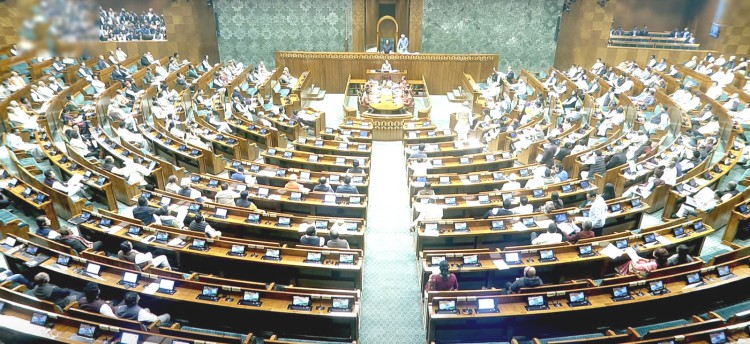




















Wednesday, Dec 18, 2024 10:30 [IST]
Last Update: Wednesday, Dec 18, 2024 04:59 [IST]
NEW DELHI, (IANS): Union Law Minister Arjun Ram
Meghwal introduced the Constitution Amendment Bill for ‘One Nation, One
Election’ (ONOE Bill) in the Lok Sabha on Tuesday.
The
tabling of the ONOE Bill set the stage for yet another showdown in Parliament
as Opposition parties stood in protest, demanding its withdrawal over its
‘anti-constitutional and anti-democratic’ nature.
Congress
leaders, in a scathing critique of the government, demanded that the Bill be
withdrawn immediately.
Home
Minister Amit Shah rebutted the charge and said that it has become a habit of
the Congress party to oppose progressive legislations.
The
TDP, a key BJP ally expressed unwavering support to the ONOE Bill and said that
this will not only ease India’s fiscal burden but will also cut down the
electoral expenses by more than 40 per cent.
Among
the parties who vociferously opposed the ONOE Bill were the Trinamool Congress,
Samajwadi Party, the Shiv Sena (UBT), AIMIM and more.
All
of them called the Bill an assault on the Constitution and a brazen attempt to
‘kill democracy and bring authoritarianism and dictatorship.’
The
AIMIM chief Asaduddin Owaisi, voicing opposition to the Bill, said that this
legislation was being brought to finish off all regional parties.
“This
is aimed at maximising political gains to a certain party and will pave the way
for a presidential form of government,” he said, slamming the BJP-led Centre.
The
ONOE Bill proposes to hold simultaneous elections for Lok Sabha as well as
State Assemblies, by synchronising the tenures of Lok Sabha and State Assembly
elections.
The
ONOP has been a long-standing poll promise of the BJP-led NDA.
Top
Opposition leaders including Rahul Gandhi, Mamata Banerjee, Akhilesh Yadav and
MK Stalin have already opposed the idea of simultaneous polls, calling it a
move towards “authoritarian democracy.”
According
to reports, the Lok Sabha Speaker is likely to refer the newly-tabled Bills to
a Joint Committee of Parliament for wider consultations.
